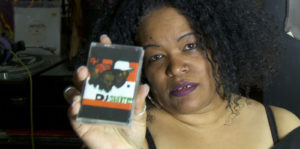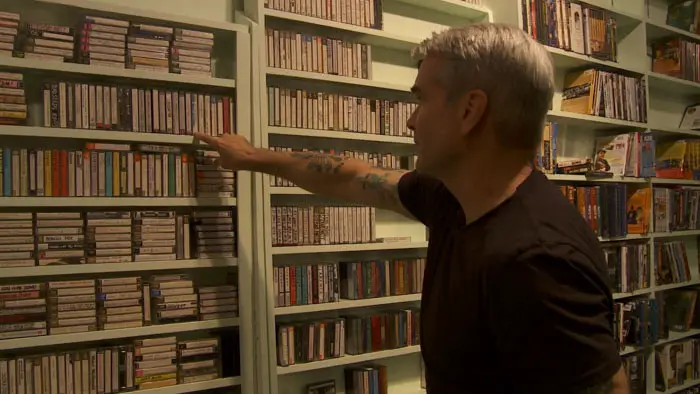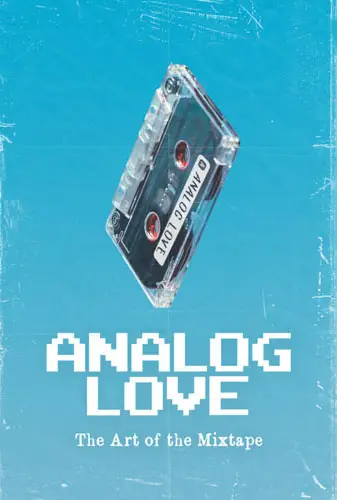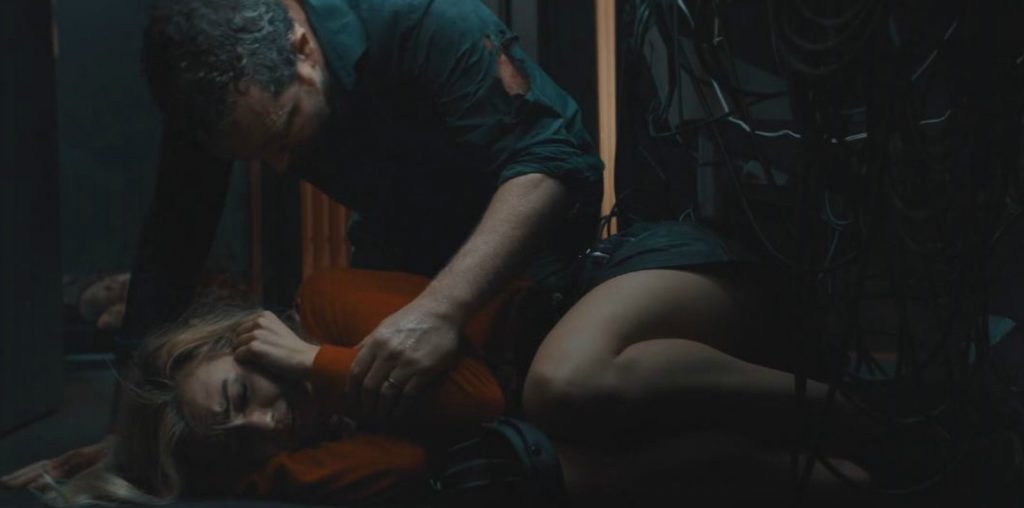
NOW ON TUBI! Directed by Robert V Galluzzo and written by Joseph Maddrey, the nifty retro culture documentary Analog Love sets an auto-reverse course back in time to when cassette tapes ruled the Earth from the floorboard of cars everywhere. The subject is mixed tapes, where people record several different songs onto blank cassettes. The songs would be selected and arranged around either a theme or, most often, a mood. They were also traditionally made to be given to someone else as a way to communicate the more hidden aspects of your personality to them (kissie, kissie).
Interviewed are several people who were involved in the heyday of mix tapes during the 80s and 90s. This includes many musicians, like Henry Rollins of Black Flag, Jennifer Finch of L7, Money Mark of The Beastie Boys, and the late Kim Shattuck of The Muffs. Everyone shares their memories and insights into the homemade taping practice, including DIY artwork and “crash” tracks that are supposed to stick out in the mix like a sore thumb. Interspersed with the interviews are scenes of a father trying to explain the tape concept to their teenage daughter, who is baffled by all the analog hoops people used to jump through to hear each other’s music.
During the 90s, slackers in Austin used to make weed money by participating in market research over what level of sound degradation could be picked up by the human ear. This could be useful for cassette companies, as they would now see just how far they could improve their product without having to improve it all the way. This is touched upon by discussions over tape quality, including the high priced “gold” tapes, which people still say they can hear a hum on.

“…sets an auto-reverse course back in time to when cassette tapes ruled the Earth from the floorboard of cars everywhere.”
I love how Analog Love explores the idea that mix tapes were about creating a sonic environment to exist in for either yourself or someone else. That the primal urge to make your own various artist compilation was to maintain a specific atmosphere is fascinating. During the cassette era, these tapes were a crucial distribution source for lesser-known bands that weren’t played on many radios. It also reflected on the tape maker, as their taste in music is a less visible aspect of themselves publicly (except for the band t-shirt). Rollins is particularly eloquent about how much labor went into making these tapes, which could mean hours hunched over a double tape deck. Also, the sticky problem of not having enough tape left on one side for your final song, so you have to find a shorter one, which usually destroys all the ambiance you built up. Oops.
It goes without saying that Analog Love is the ultimate overview of the whole home-taping phenomenon. Every last aspect is touched upon, including that all those tapes that person gave you were because they wanted to sleep with you. Also explored was how many people made mix tapes for their own personal consumption only. Finch confesses onscreen that she would never listen to mix tapes other people made for her. She would just glance at the tracklist and thank them later. This film is going to send reverberations like thunder through Generation X, as these were our generation’s paintings on the cave walls. It is also hilarious watching the filmmakers try to locate a car with a tape deck to test the mix tape in.
The study is exhaustive to the point of being exhausting. Despite the richness of the material, by the time you are through the first hour, you are full and ready to be done. It isn’t that there are obliviously excess footage, it is simply a matter of how much momentum all this reflection sustains. In-home taping lingo, this documentary would have worked better on a C-60 than a C-90. However, the sentimental factor generated by weed and liquor will get most of the target audience over the fence. Sit back and rewind to Analog Love. Get ready to party until your little fuzzy thing falls off.

"…Is going to send reverberations like thunder through Generation X..."

